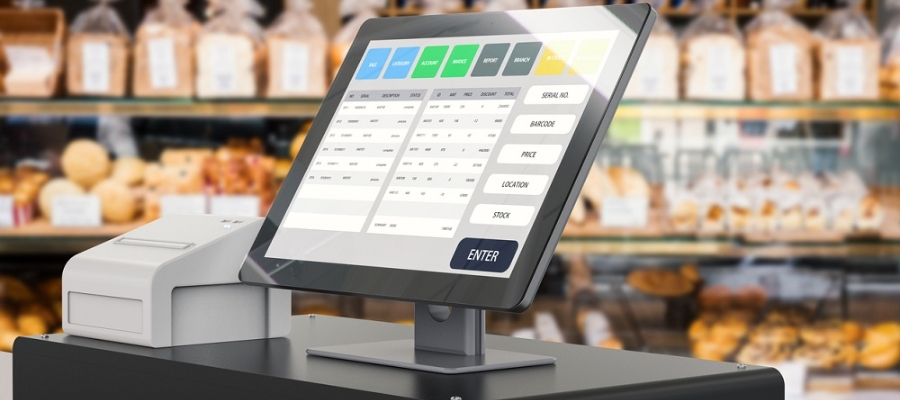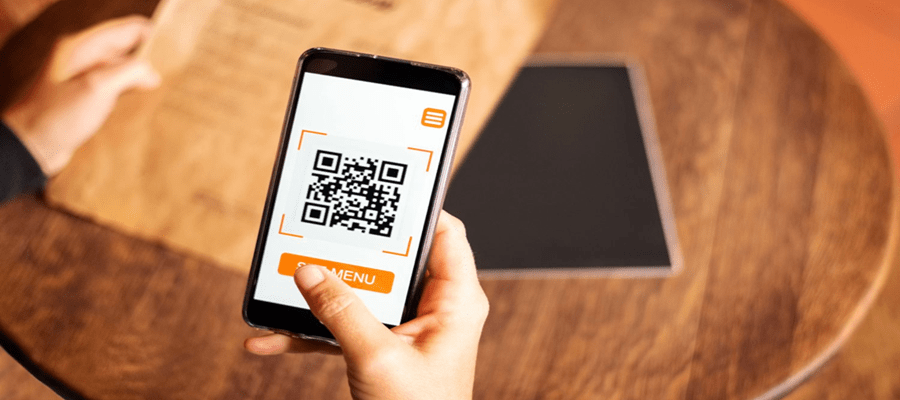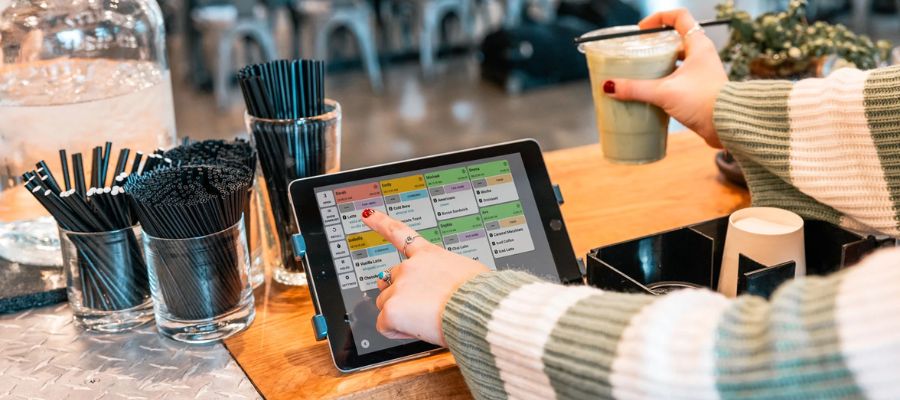
POS Software: The Key to A Successful Business
In today's fast-paced business world, success and failure may lie in the tool you use. And one such indispensable tool today across businesses is the POS software. From small to large companies, the POS has transformed from simple cash registers to entire management platforms that track sales, inventory, and customer relationships. It is hence very relevant to know the role of the POS software and how it can be customized to take your business to a completely new level.
POS Software: Understanding What it Means
Point of Sale software, in short, POS, is such a transaction management software used in the retail, hospitality, and service sectors. This is the software that helps businesses at those points where a transaction between the seller of goods or services is completed and hence sold to the customers. Its application ranges from retail store selling of goods to a meal in a restaurant to ordering online for delivery. Of course, modern POS is far from being a cash register in its application. It's a complex system that looks after inventory management, customer relation management, and analytics of sales.
POS software is not just a machine that processes a transaction; it is about operation and insight into driving business. With one powerful POS system, you will have access to your inventory level, generated sales reports, manage your customer data-all in one well-rounded solution that will help boost across-the-board business efficiency.
Features of POS Software: What to Look For
When you set out to invest in POS software for your business, you should know a couple of things regarding the key features that will help you achieve success. Here are some of those essential features:
1. Sales Management: Essentially, the POS software must be able to manage sales transactions with efficiency. It must include credit card swipes, processing of payments, return and exchange of money and payments, issuance of receipts, and more. More importantly, it should handle the acceptance of modern forms of payment, such as mobile payments.
2. Inventory Management: Real-time inventory level tracking lies at the heart of effective supply chain management. Control your inventory using this feature-rich point-of-sale software, whereby you can track your stock levels, set reordering alerts, and manage vendors. This way, you will always have the necessary products on hand without tying up too much capital in 'dead' inventory.
3. Reporting and Analytics: Data-driven decision-making is one of the key definers in today's competitive business environment. Your POS software should be able to give you a comprehensive report about sales performance, inventory turnover cycles, and customer behaviour. This can lead to spotting trends, optimizing pricing strategies, and other ways of enhancing operations.
4. User-Friendly Interface: The goals of POS should be easily understandable and implemented by the employees as well as the customer. More significantly, it would reduce the training period and would be very unlikely to have an error; thus, making it easy to use and the transaction smooth during the rush hours.
5. Integration Capabilities: This system should also be capable of linking to other business systems such as accounting, e-business, marketing and others in order to form a smooth workflow without disruption of data between units.
6. Security Bit − For the purpose of POS software is to safeguard your customers’ information. Make sure the POS software you are using has good security measures such as encryption, tokenization or more especially compliance with the security rules like the PCI DSS.
7. Cloud-Based vs. On-Premise: Think about whether you would like your point-of-sale system to be cloud based and therefore more easily accessible from anywhere or on-premise bringing more options for adjustments from your side. In some cases, the monitor at the large scale business establishments is not concern with such aspect as the checkout statistics .
POS as a Gamechanger for Small Business
The POS software can be one game-changing tool for a small business. Contrary to the belief that predominantly surrounds large firms, small businesses have resource constraints and need to make the most of their productivity to stay in the race. Some positive features of the POS software designed specifically for small businesses are as follows:
1. Affordability: Most of the POS software providers offer packages that best suit the requirements and budgets of small businesses. Apart from this, the system is mostly scalable: one can always start with basic functionality and enhance the same as business expands.
2. User-Friendly: Small business owners and their employees do not have much time for training on highly complex systems. In this regard, POS software exclusively developed for small business is designed very simply so that even a nontechnical person can run it easily.
3. Mobility: Business operations related to a food truck, pop-up shop, or market vendor require mobility from place to place. Because the point of sale is cloud-based, it is not rooted to any place but simply provides the facility of operations in a location through the availability of an internet connection.
4. Customer Relationship: For small-scale businesses, a customer loyalty relationship is essential. POS software enables CRM functionality, which helps in customer preference tracking and controlling loyalty programs; however, custom promotions can be used to tie one customer to a business over the long run.
5. Inventory Management: A small business typically doesn't have much storage; one has to be very keen on the stock on hand. A POS system tracking inventory helps in preventing out-of-stock and overstock situations so that every product on the shelf is optimized for sale.
POS Software Development Tutorial: How to Create a Custom Solution
Custom development of POS software is an attractive proposition for a tech-savvy entrepreneur and those businesses that have some specific needs. So, through POS software development tutorials, let you develop such a system that aligns well with your business requirements.
Steps to Develop POS Software:
1. Identify the Needs: Clearly define what features and functions your POS software will need. Keep in mind the nature of the business, the nature of the goods or services produced and distributed, and how the sales function within that cycle.
2. Technology Stack Selection: Determine the programming languages, framework, and database that will serve as architectural components for your POS software. Generally speaking, people use either JavaScript at the front-end or Python or Java at the back-end, and use databases like MySQL or PostgreSQL.
3. Design User Interface: Design a friendly, easy-to-operate, user-intuitive user interface. Emphasize how the user can get his transactions done with minimal time and effort without errors.
4. Create the Core Features: Begin the creation of some basic features, or core features of what your POS should contain. These include sales processing, inventory management, and reporting. Add some security features to secure customer data.
5. Testing and Debugging: Put your POS to a pretty decent amount of testing and get rid of all the errors and issues. Preferably, test the system in realistic conditions, so it is proven that it works flawlessly under those conditions.
6. Implementation and Deployment: Once your POS software is fully developed and tested, now is the high time to implement it right into your business. Train your staff on using it, and have some feedback in order to make some adjustments if needed.
7. Update and Maintain: The POS software is useful not until the regular software updates and software maintenance. Update the software frequently to the new feature sets, improved performance, and to fill in the security loopholes.
Building in-house custom POS software will automatically place your system in an advantageous spot in the market. On the other hand, time and cost need to be factored in when investigating a custom solution.
Keys to succeed with POS software
The right choice of POS software does not only make your operation move easier, but also the gurantee of the success of your customers. Here is what you need to do:
1. Quick and effective transactions: Slow checkouts form the most significant cause of customer dissatisfaction and loss of sales. Proper POS software features a high flow of POS transactions.
2. Personalisation: Utilize the CRM functions of your POS software to personalize the shopping experience. Make special promotions targeted at them, suggest products based on the customer's purchase history, and identify VIP customers and make appropriate rewards.
3. Confidence and Trust: A POS has to explain the receipt received by the customer, with details of goods bought and relevant discounts provided. The customers like to see things being conducted in a clear and transparent manner.
4. Omnichannel Experience: The modern customer would expect a seamless shopping experience in that, whether one is buying in-store, online, or on mobile, the experience cannot differ from one channel to another. A POS system integrated with e-commerce over a wide number of sales channels ensures the experience is not only consistent but highly convenient.
Conclusion
POS software does more than just process transactions. It is an overall solution that will bring success to businesses and improve operations, customer relations, and enlighten you with valuable insights. Whether with an affordable system that is kind to a small business's pocket but user-friendly, or while an entrepreneur is getting things developed with custom software, there is an actual requirement to have a POS system to avail the full potential of a business. This, with the awareness of characteristics, benefits, and development of the POS software, is in a position whereby they can make informed choices that form part of their long-lasting bases for success in business.


